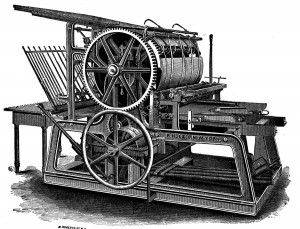Copyright Guru Changes Mind: Costs Lawyers Millions
Moses Avalon
The most important decision in the war to preserve copyright did not happen in a court room, a dorm room, or a protest. It happened quietly in the mind of an avatar of one the most referenced copyright scholars in history.
Last week, carrying the touch of his father, the son of noted copyright scholar Melville Nimmer, whose popular copyright treatise Nimmer on Copyright, is used as the building block by lawyers of most every copyright dispute, issued a statement on what constitutes “distribution.” This one interpretation could affect thousands of copyright cases.
Although the Jammie Thomas and Joel Tanenbaum cases have been in the forefront, the RIAA has sucessfully sued well over 10,000 P2P file sharers over the past decade under the premise that they illegally “distributed music protected by copyright.” Their position has always been that distributed meant “parted with permanently,” as per the definition in the US Copyright Act.
Lawyers defending P2P file shares have maintained that simply making music available on your hard drive is not the same as “distribution,” whereas the RIAA has insisted this is a distinction without a difference. Nonetheless this argument has sustained itself through several layers of appeals, which have, with rare exception, resulted in defeat for the defendants.
In the past, when courts have consulted Nimmer, the stated interpretation is always been that some effort is required to distribute. In other words (to use the common “applecart analogy,”) simply having stolen apples in a basket in front of your store and allowing passersby to take them, is not the same as “distributing” stolen apples. To distribute you would’ve had to do something pro-active, like handing apples to the passersby.
This past week however Nimmer’s son, David, came down squarely on the side of the RIAA, thus closing an important loophole/argument used by attorneys that has cost thier unsuspecting defendant/clients in several landmark hundreds of thousands in legal fees.
The story is well chronicled on the website Coppyhype,
“Several courts have consulted [Nimmer] when analyzing whether “making available” constitutes distribution. As recently as 2011, the treatise took the position that infringement of the distribution right requires actual dissemination of copies of a work to the public. But in the latest edition, Nimmer has changed his tune—the treatise now states that “making available” is distribution simpliciter.”
“Nimmer on Copyright,” has been cited in well over 3000 federal cases and is far and away the record-setting reference on interpretations of copyright. It is difficult to determine the domino effect that this change of heart will have on pending copyright cases, but few in the legal community would argue that this reversal is insignificant.
Mo out



It takes effort to make your hard drive available for P2P file sharing. You must sign up to a site or click to agree to have your hard drive included. It is an overt act.
Wow, talk about the mule kicking itself in the ass. The laws on Copyright should be just as strict for protecting artist, as a junkie should be strict and not use pre-used needles. One side supports the other. Whose to say that, the file sharer wont go home, make a copy of the file on the computer, then master that copy and sell it on the streets like they are doing now in the UK? Whose to say that after an artist works hard, loses sleep, money, time, gets older, gets weary and tired from the pursuit of it all, that said artist is dying to have their work of talent shared for free? How does that artist re-coup the work, the money and the stress involved with the making of music? How does the artist know if their song is being heard, played and paid for? How would they know, if they are start up talent with no track record, no reps, just out doing their thing? I believe that back in the day, a friend or radio look out would call the artist and say, heh, we just hear YOU on the RADIO. Does anyone care anymore, is the question.
At long last! Justice is beginning to be served! I agree, “free” hard drive access is just as deliberate as making CD copied for someone else. It’s too easy to add to our collections, something someone else bought and pass it around. Especially since hard drive access almost always means read (alias copy) capability. And even if it is not, being able to LISTEN to the music on someone else’s hard drive …. over and over – is the same thing.
Now, I love music. And I have to admit I am tempted, when someone offers to make a copy of something new that catches my attention. But after enough “no, thank you”s, it becomes habitual and easier – and I just feel better about myself, as well. Just like anything else that you know is wrong, no matter how “insignificant” it seems, we all would do quite well to stand up for someone else’s rights. After all, what goes around, comes around.